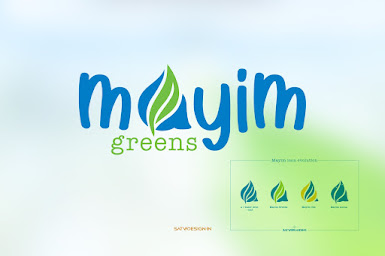Satva Designs' branding project for Mayim Greens is a visual symphony inspired by the rhythmic nature of water. Rooted in the Hebrew word "Mayim," meaning water, our brand's typefaces mimic the graceful flow of water, symbolizing adaptability and continuity. The typography, reminiscent of flowing currents, echoes the brand's commitment to fluidity and transformation.
The iconic water drop, crafted from the letter 'a,' embodies both a droplet and a leaf, symbolizing life and nature. The launch at a hydroponic farm in Karnataka underscores our dedication to sustainable practices.
Our branding extends beyond the present, strategically designed for a future that encompasses oils, Aqua, and more. This dynamic identity serves as a canvas for Mayim Greens' evolving ventures. As the brand ventures into oils, it seamlessly adapts, ensuring a consistent and versatile presence across diverse industries.
Mayim Greens: where innovation meets the ever-flowing stream of possibilities.

Comments
Post a Comment